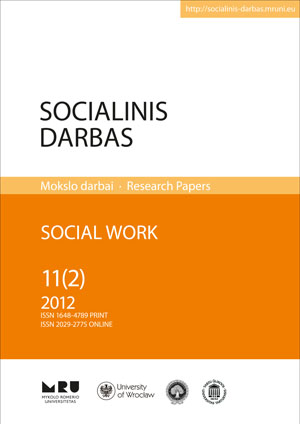Pasitenkinimo karjera veiksniai
Factors of Career Satisfaction
Author(s): Aistė DromantaitėSubject(s): Social Sciences
Published by: Mykolas Romeris University
Keywords: career satisfaction; personal skills
Summary/Abstract: Analysis of career management shows that personal self-knowledge is one of the most important individual, social and psychological aspects of life. The process of consistent and logical career choices is based on it. A great deal of career guidance and professional counselling specialists claim that career planning should start from the process of self-knowledge. Besides, they claim that it is an important factor of appropriate career choice and a guarantee of career satisfaction. Deeper personal knowledge helps gain a better understanding of ourselves and thus it becomes easier to determine which working environment is more acceptable and how successfully will it be possible to work in a chosen field. The assessment of personal needs, ambitions, goals, values and philosophy helps people understand themselves and their wishes better. Psychological and sociological research data shows that individuals should listen very attentively to their “I wish” and “I can do,” then evaluate and harmonize them. Such assessment should consider personal aptitudes and interests, abilities, individual psychological characteristics, knowledge, abilities and skills. In other words, a person willing to reach greater career satisfaction should choose the profession best matching his or her personal traits or characteristics. The purpose of this article is to discuss the factors potentially influencing career satisfaction. The methods used are a systemic scientific literature analysis and synthesis, scientific content analysis. The conclusions are that after summarizing the arguments of scientific management theories and structuring scientist theories it can be stated that career satisfaction is influenced by a subject competence (theoretical knowledge and experience of practical work), personal skills (curiosity, flexibility, openness), social skills and lifelong learning.
Journal: Socialinis darbas
- Issue Year: 11/2012
- Issue No: 2
- Page Range: 289-300
- Page Count: 12
- Language: Lithuanian

